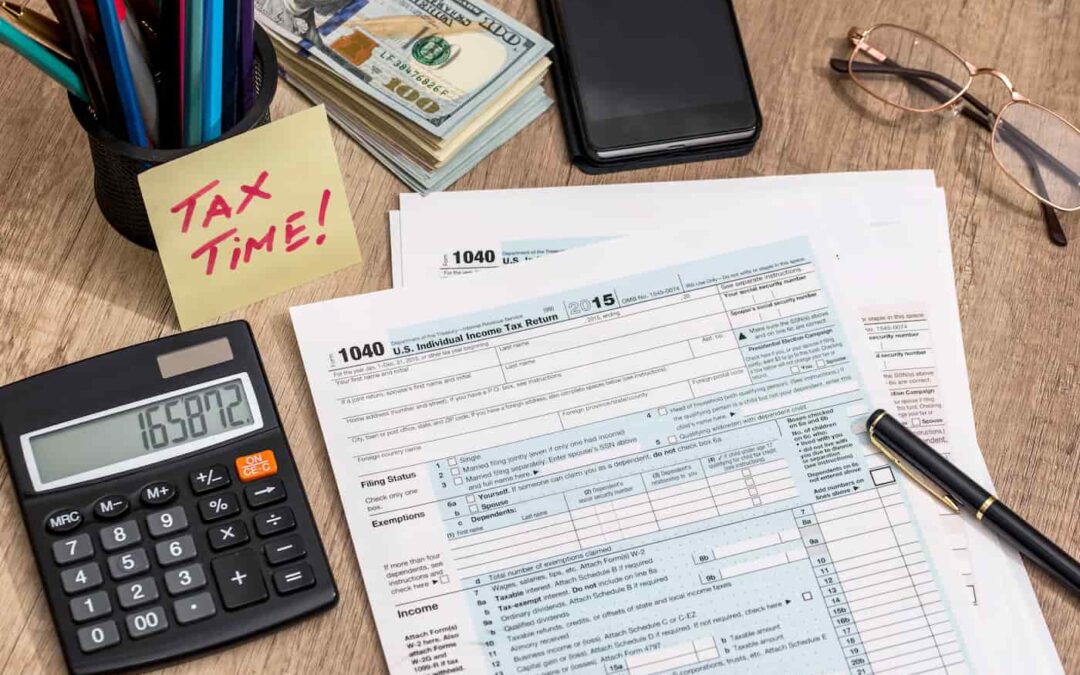As a self-managing landlord, it’s essential to be aware of the various tax implications that come with owning rental property. After all, investment ownership isn’t a simple cash-in, cash-out scenario. Instead, many complex rules govern the income you need to report and the appropriate deductions you can take. Fortunately, proper tax preparation can help you avoid potential mistakes or oversights and ultimately save you money. However, staying ahead of these complicated tasks takes consistency and self-discipline. With tax season quickly approaching, here are five tips you should keep in mind when preparing your taxes:
1. Plan Ahead for Tax Season
Preparing for tax season can be stressful, but starting early and keeping good records throughout the year can make the process much smoother. Consider setting aside a portion of your rental income each month to cover your tax liability. That way, you won’t be scrambling to cover an unexpected bill when April 15th comes around. You should also have all the necessary documentation ready when it’s time to file your return. You’ll need that information to support your return if you’re on the unlucky side of a tax audit. By planning ahead, you can minimize the stress of tax season and ensure that you comply with the law.
2. Keep Good Records
Keeping accurate and thorough records of your rental property income and expenses is essential. This includes receipts for any repairs or improvements made to the property, as well as documentation of rent payments received. Keeping organized records will make it easier to claim deductions and credits on your tax return and will also help you in the event of an audit. Scanning receipts and storing them electronically can help you avoid clutter, stay organized, and provide critical backups should you lose your original documents.
3. Claim Eligible Deductions
Landlords are entitled to claim a variety of deductions on their tax returns, which can go a long way toward lowering their total taxable income. These deductions could include expenses like mortgage interest, property taxes, insurance, and repairs and maintenance. However, the IRS won’t just take you at your word. That’s why it’s essential to keep receipts and other documentation to support these deductions, particularly in the face of an audit. Additionally, you may be able to claim a depreciation deduction for the wear and tear on your rental property over time.
4. Take Advantage of Tax Credits
In addition to deductions, you may also be eligible for tax credits related to your rental property. For example, the Energy Star program offers credits for landlords who make energy-efficient upgrades to their properties. Your state and municipal may also provide tax credits for a variety of programs. These credits can significantly reduce your tax burden, so it is worth exploring whether you are eligible for any credits.
5. Report All Rental Income
It’s crucial to report all rental income, regardless of whether it was received in cash or through another method, such as a check or electronic payment. Failure to report all rental income can result in significant penalties and interest charges. You could even be vulnerable to criminal charges if the authorities believe you were purposefully concealing taxable income
6. Know the Rules for Personal Use of Rental Property
If you use the rental property for personal purposes, such as a vacation home, you may be required to report some of the rental income as personal income. You can also claim deductions on your personal tax return, such as mortgage interest and property taxes. It is important to familiarize yourself with the rules for the personal use of rental property to ensure that you accurately report your income and claim the appropriate deductions.
7. File Your Taxes on Time
It’s important to file your taxes on time, even if you cannot pay the total amount owed. Failing to file your taxes can result in penalties and interest charges, so make sure to file your return by the deadline. If you need more time to gather all the necessary documentation, you can request an extension, which will give you additional time to file your return.
8. Consider Hiring a Tax Professional
If you are new to being a landlord or have a complex tax situation, it may be helpful to hire a tax professional to assist with your tax preparation. A tax professional can help you navigate the various rules and regulations related to rental property ownership and ensure that you take advantage of all available deductions and credits. What’s more, the cost of tax preparation is often a deduction landlords can take.
By following these tips, you can make the tax preparation process as smooth and stress-free as possible. Proper tax planning and preparation can help you save money and avoid any potential mistakes or oversights.
Property Managers Provide High-Quality Record Keep Services
Landlords concerned about maintaining quality, organized records should also consider partnering with a professional property manager. Qualified property managers have systems in place that automatically track details like rent payments, expenses, and repair and maintenance costs. At the end of each year, your manager should package that information into the relevant tax forms you can provide to your tax preparer, making the process of filing taxes much, much more manageable.
Another benefit of partnering with a property manager is that their services can be deducted from your taxes as a qualified business expense. Property managers will help you with record keeping, attracting and screening tenants, and so much more. Contact us today if you’d like to learn more about how Rent Portland Homes can help you run a more efficient rental operation. You can call or text us at 503.515.3170 or by filling out the contact form on our webpage. We can’t wait to talk with you!


Recent Comments